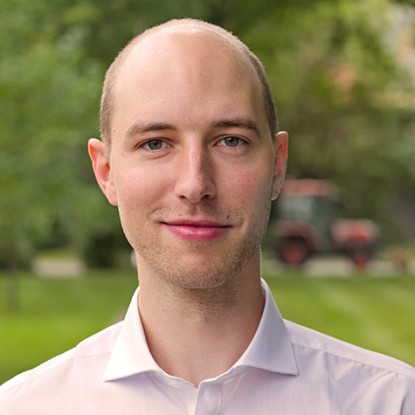Lauritz Zendel M.Sc.
Modeling of Carnot batteries with latent thermal energy storage
Contact
zendel@ttd.tu-...
work +49 6151 16-25916
Work
L2|06 214
Peter-Grünberg-Str. 10
64287
Darmstadt
| Since 2023 | Researcher at the Institute for Technical Thermodynamics, Technical University of Darmstadt |
| 2022–2023 | Master´s thesis: “Investigation of the influence of decentralized feed-in on district heating networks” |
| 2020–2023 | M.Sc. Energy Science and Engineering, Technical University of Darmstadt |
| 2019–2023 | M.Sc. Maschinenbau – Mechanical and Process Engineering, Technical University of Darmstadt |
| 2016 – 2019 | B.Sc. Maschinenbau – Mechanical and Process Engineering, Technical University of Darmstadt |
Project “Modeling of Carnot batteries with latent thermal energy storage”
Due to the increasing share of renewable energies in electricity generation, it is increasingly subject to fluctuations. One possibility to counteract the resulting temporal offset between generation and consumption is the use of energy storage. In addition to established storage options such as pumped hydroelectric energy storages, which are tied to geographic conditions, Carnot batteries (CB) represent a location-independent alternative for energy storage.
A CB consists of the three main components heat pump, heat storage, and heat engine. To charge the CB, the heat pump is operated, which uses electricity as input energy to charge the thermal storage unit. When discharged, the heat engine is used to convert the stored heat back into electricity.
The German Research Foundation (DFG) has established the priority program “Carnot Batteries: Inverse Design from Market to Molecule”.
Within this priority program, CBs are investigated on three levels:
- Area A: Carnot batteries in energy markets
- Area B: Development of Carnot batteries
- Area C: Components of Carnot batteries
An inverse design is used, which derives suitable CB configurations from the market-based demands and the requirements for the components of the CB from these.
The project “Modeling of Carnot Batteries with Latent Thermal Energy Storage” is located in area B. The focus of this project is on the modeling of latent thermal energy storage (LTES) based CBs.
The following six work packages (WP) is planned:
- WP 1: Definition of characteristic operation scenarios
- WP 2: Development of a simplified model of a LTES for inverse design
- WP 3: Modeling of CBs with hypothetical material values and parameters through the application of inverse design
- WP 4: Identification of optimal CB configurations
- WP 5: Simulations and analysis of CB configurations selected in WP 4
- WP 6: Exergoeconomic analysis and assessment of technology readiness level
Further information on the SPP can be found on the homepage of the German Research Foundation: DFG – Deutsche Forschungsgemeinschaft – Priority Programme.


